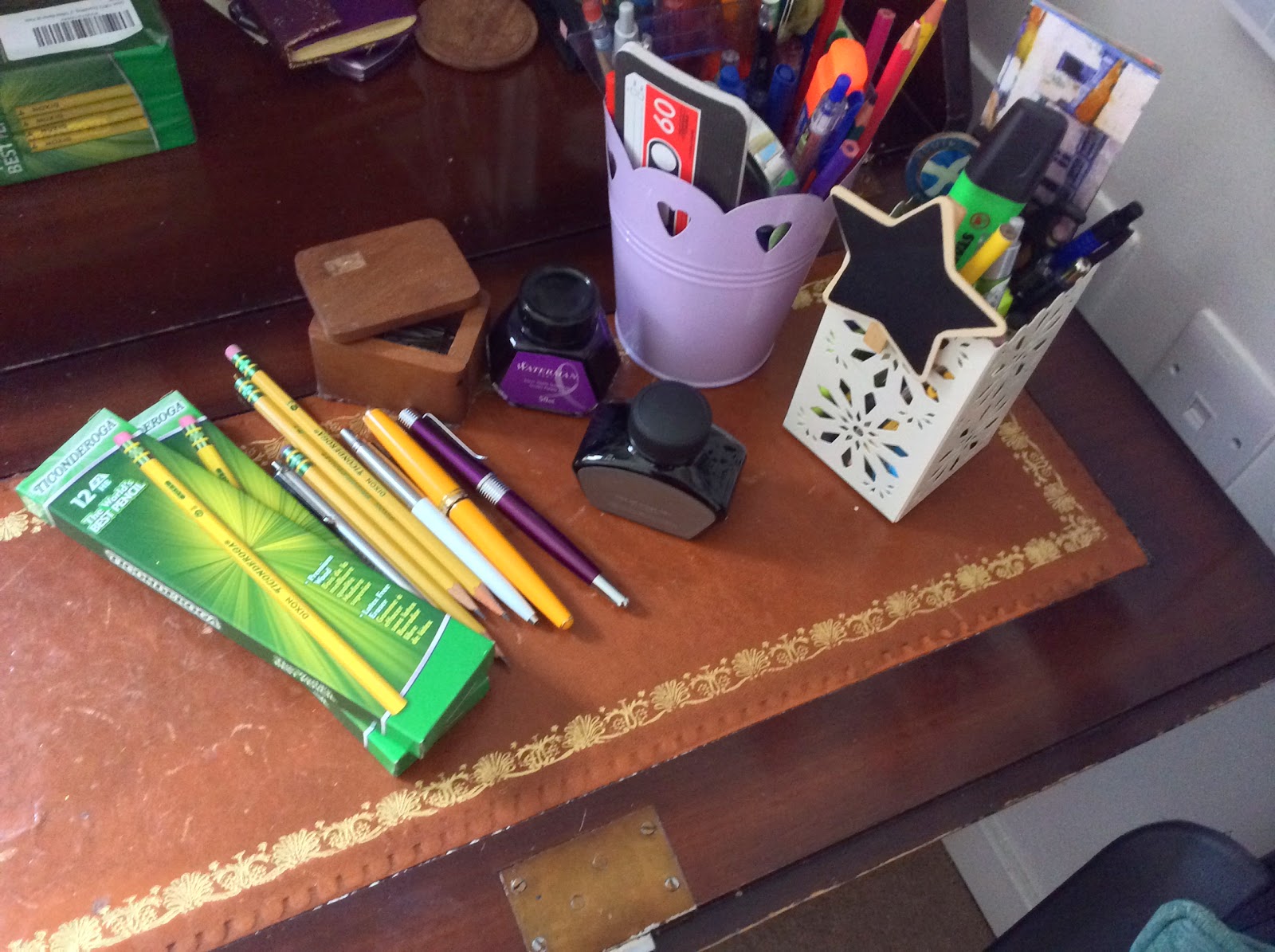I envy my son. Not (only) because he's young and intelligent and beautiful, but because he was born well within the digital age. His first pictures my family saw were sent over the Internet; he reads and plays both in the real and the virtual world; computers and technology have no secrets for him.
I am a different story. Computers had been invented when I was born (I'm not that ancient), but I don't think private citizens owned them then - not in Greece in the late sixties, at any rate: there must have been something like six or seven room-sized ones in the possession of banks and research centres, perhaps. At school we were taught to read in books made of paper, to write with pens and pencils, to do our research in libraries where you had to use a step-ladder, and be covered in dust - and sometimes cobwebs.
When I began to use a computer in the late eighties, as a sort of posh typewriter for writing and printing mostly, it was new and exhilarating (look! you type in and then you can overwrite and it changes on its own!), although it took me a while to get used to typing in the appropriate commands for everything. (I've mentioned the unexpected benefits of this many years later, in my very first post.) Then came the nineties and the developments were so fast - the white screen! the icons! THE INTERNET! THE LAPTOP! - that I can't keep track of them. By then, a schizoid pattern in my work had already been established. Journals, stories, the occasional (bad) poem, translations, letters, essays, dissertations, notes, in big floppy discs, in small floppy discs, then no discs but sticks. In notebooks and notepads of all shapes and sizes. Yellow rubber-tip pencils and fountain pens and rollerballs. PC, laptop, ipad. Being both a stationery fetishist and a gadget maniac, it is obvious that I am being literal when I'm saying that my work is all over the place.
Analogue or digital? The younger generations are blissfully unaware of the dilemma. But for me it's real. You do more with a machine, it's true. Writing is faster and the ideas flow, and not having to strain your eyes to decipher it later is an added bonus. But nothing smells as nice as a stationery cupboard full of old, worn, worked notebooks, and brand new ones waiting to be used, bright and pristine, as beautiful in their way as bridal accessories (and without the complications involved). An ipad doesn't smell of anything - neither does a laptop. You can't press a sprig of basil inside it and discover it many years later and try to remember where and when and how. Yet you can shape and reshape painlessly, and share quickly. And print.
Oh well. I'll be both analogue and digital all my life, I think. If it's a question of head vs heart, it's not even a choice: you need both, you can't do without one or the other. But writing - the physical act of writing - has a little to do with, you know, those greats you've been looking up to all your life: the Prousts and the Yourcenars, the Austens and the Woolfs (Woolves?): their quills and fountain pens, their sheets of paper whisked away when visitors came and their typewriters clicking away in an empty Bloomsbury house. What would they have done? What would they have chosen, given the choice?
 Who knows?
Who knows?
But does it matter really?
 |
| PhD Project: a notebook for each role. |
 |
| Sribophilia? Is there such a condition? |
 |
| Best thing about being a student again? New note pads! |
Analogue or digital? The younger generations are blissfully unaware of the dilemma. But for me it's real. You do more with a machine, it's true. Writing is faster and the ideas flow, and not having to strain your eyes to decipher it later is an added bonus. But nothing smells as nice as a stationery cupboard full of old, worn, worked notebooks, and brand new ones waiting to be used, bright and pristine, as beautiful in their way as bridal accessories (and without the complications involved). An ipad doesn't smell of anything - neither does a laptop. You can't press a sprig of basil inside it and discover it many years later and try to remember where and when and how. Yet you can shape and reshape painlessly, and share quickly. And print.
 |
| The Apple Orchard |
Oh well. I'll be both analogue and digital all my life, I think. If it's a question of head vs heart, it's not even a choice: you need both, you can't do without one or the other. But writing - the physical act of writing - has a little to do with, you know, those greats you've been looking up to all your life: the Prousts and the Yourcenars, the Austens and the Woolfs (Woolves?): their quills and fountain pens, their sheets of paper whisked away when visitors came and their typewriters clicking away in an empty Bloomsbury house. What would they have done? What would they have chosen, given the choice?
 Who knows?
Who knows?But does it matter really?
No comments:
Post a Comment